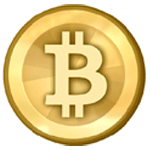
Bitcoin goes mainstream with ATM in Vancouver coffee shop

 A silver and blue ATM, perched up next to the espresso bar in a trendy Vancouver coffee shop, could launch a new era for the digital currency bitcoin, offering an almost instant way to exchange the world's leading virtual money for cash.
A silver and blue ATM, perched up next to the espresso bar in a trendy Vancouver coffee shop, could launch a new era for the digital currency bitcoin, offering an almost instant way to exchange the world's leading virtual money for cash.
The value of a bitcoin soared from $13 in January to a high of $266 in April as more businesses and consumers used them to buy and sell online. Some investors are also treating bitcoins like gold, using them to hedge against currency fluctuations and speculating on their rise.
The kiosk, which looks like the average ATM but with hand and barcode scanners, opened for business on Tuesday and by mid-morning people were lined up to swap their bitcoins for cash, or to deposit cash to buy more bitcoins.

"It's as easy as walking up to a machine, scanning your hand, entering some cash and buying bitcoin," said Jordan Kelley, chief executive of Las Vegas-based Robocoin, the company that builds the ATMs. "With this, it's a 2-minute process. For any online exchange, it's at least two days."
Bitcoins, currently worth about $210 each, can be transferred without going through banks or clearing houses, thereby cutting fees. Users can buy products and services online or in a handful of stores, including the Waves coffee shop where the ATM is.
With the bitcoin ATM, users scan their hand to confirm identity, then funds move to or from a virtual wallet on their smartphone. The system limits transfers to $1,000 a day, in an effort to curb money laundering and other fraud.

Bitcoiniacs, the local dealer that operates the ATM, will roll out four other kiosks across Canada in December. Robocoin said Canada was the ideal place to launch the kiosk due to a critical mass of users and less stringent oversight than in the United States, where the bitcoin trade is monitored by anti-money laundering regulators.
"We think the Vancouver market is enormous and we're excited to be here," said Kelley. "By the end 2013, we'll be all over Canada. By the end of 2014, we'll be all over the world, including the United States."
Bitcoin is not a recognized currency in Canada, so Ottawa's anti-money laundering watchdog, the Financial Transactions and Reports Analysis Centre, does not monitor its trade.

Still Bitcoiniacs' founders say they are working with the agency to be ready for when Canada does start regulating them.
"We're already being proactive in our business," said Bitcoiniacs co-founder Mitchell Demeter. "We abide by any guidelines they would impose - which includes the 'know you customer' laws and anti-money laundering laws."
Going mainstream

Bitcoins were launched in 2008 and are traded within a global network of computers. They are not backed by a single company or government, but their release is tightly controlled, mimicking a central banking system's control over the minting of money.
Bitcoins can be bought with near anonymity, which supporters say lowers fraud risk and increases privacy. But critics say that also makes bitcoins a magnet for drug transactions, money-laundering and other illegal activities.
The currency's reputation took a hit this month, when U.S. regulators shut down Silk Road, an online marketplace used to buy and sell illegal drugs, and seized $3.6 million in bitcoins.

But the virtual currency is gaining hold among businesses and consumers, a key step to a bigger role.
"I think it's definitely going mainstream," said Demeter. "I think as things progress, and the infrastructure is built, it will become easier for people to buy and sell, and so more people will start using it."
In Vancouver, for example, dozens of people attend weekly bitcoin meet-ups and a member co-op is promoting the currency to a growing list of local retailers.

At Waves, Vancouver resident Chung Cheong used bitcoin to pay for his mug of tea and was happy to mull over the future of the digital currency.
"It's been said that we're at the stage where email was in 1992," he said. "Is it risky? Sure. But look at how the Internet and email changed the world."
